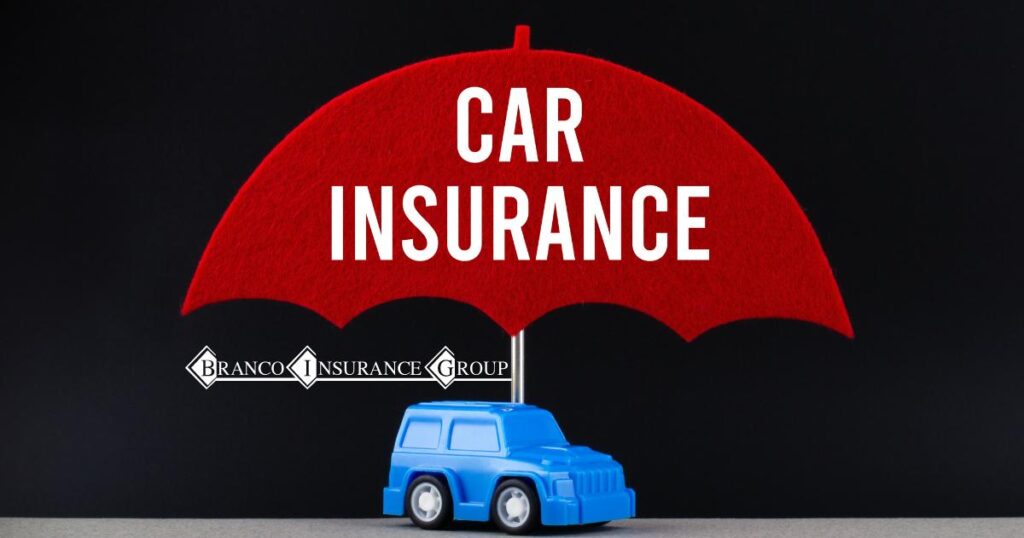
What Types of Auto Insurance Coverage Do I Need?
Understanding auto insurance is essential for both legal compliance and financial protection. Auto insurance isn’t just a requirement—it’s a safeguard against risks like accidents, theft,

Auto insurance is a necessary purchase for all drivers. It protects you financially in the event of an accident, and can also help protect your credit rating. Here are the top 10 things to know about personal auto insurance:
Your auto insurance policy is a contract between you and your insurer. It outlines what is covered in the event of an accident or other incident. You should understand your policy’s terms and conditions before signing up.
There are four main types of coverage in a typical auto insurance policy: bodily injury liability, property damage liability, collision, and comprehensive.
Bodily injury liability covers medical expenses and lost wages for people injured in an accident caused by you. Property damage liability covers damage to other people’s property, such as their car or fence, in an accident caused by you. Collision coverage pays for damage to your vehicle if you cause an accident. Comprehensive coverage pays for damage to your car from events other than collisions, such as theft, vandalism, or weather damage.
There is usually a deductible associated with auto insurance policies, which is your out-of-pocket cost before your insurer begins to reimburse you.
Auto insurance rates vary depending on several factors, including your age, driving record, car type, and where you live.
You can save money on your auto insurance by comparison shopping, taking advantage of discounts, and increasing your deductible.
If you are involved in an accident, your insurance company will require you to provide proof of insurance. This is important because it helps to ensure that you are financially responsible for the damages that you have caused. Without proof of insurance, you may be held liable for the total amount of the damages.
There are a few ways that you can provide proof of insurance. The first is to have your insurance card with you at all times. This way, if you are involved in an accident, you can simply hand over your card to the other party. The second way is to keep a copy of your insurance policy in your car. This way, if you are involved in an accident, you can show the other party your policy, and they can see that you are covered.
The third way to provide proof of insurance is to have a certificate of insurance. This is a document issued by your insurance company proving that you have insurance.
Auto insurance generally covers damage to your vehicle and liability for any injuries or property damage you may cause to others while driving. Most auto insurance policies also provide coverage for medical expenses incurred due to an accident. In addition, many auto insurance policies offer protection against theft and vandalism. If you are financing your vehicle, your lender will require you to purchase comprehensive and collision coverage, which pays for damage to your vehicle caused by events other than a collision, such as fire, theft, or vandalism.
Most people choose to purchase auto insurance through a licensed insurance agent or broker. However, you can also purchase auto insurance directly from an insurance company. If you are buying insurance from an agent or broker, be sure to ask about discounts that may be available, such as a multiple-policy discount if you also purchase your homeowner’s insurance through the same company. You can also get discounts for taking a driver training course or installing safety devices in your vehicle.
Be sure to shop around and compare rates before purchasing auto insurance. Rates can vary significantly from one company to another, so it pays to get quotes from several companies before making a decision. You can get free quotes from many insurance companies by visiting their websites or calling them directly. When you are comparing rates, be sure to compare apples to apples, meaning that you are comparing the same coverage and deductibles for each company.
It’s important to remember that the cheapest auto insurance policy may not always be the best deal. In some cases, a “bargain” policy may have low premiums but also come with high deductibles and limited coverage. So be sure to do your homework before buying auto insurance.
Many different factors determine auto insurance rates. Your driving record, the type of vehicle you drive, and where you live are just a few of these factors. Insurance companies use different methods to calculate your premium, so shopping around and comparing rates is essential before choosing a policy.
One thing that all insurers look at is your driving record. If you have a clean record, you’re more likely to get a lower rate. But your rates will be higher if you’ve been in accidents or received speeding tickets.
The type of vehicle you drive is also a factor in determining your rates. If you have a car that’s considered to be high risk, such as a sports car, you’ll pay more for insurance than someone with a safer vehicle.
Location is also essential when it comes to auto insurance rates. If you live in an area with a high crime rate or a lot of accidents, your rates will be higher than if you lived in a safer location.
When you’re shopping for auto insurance, it’s crucial to compare rates from different companies. Each company uses different criteria to calculate your premium, so you could pay more or less depending on who you choose.
It’s also a good idea to review your policy periodically to ensure you’re still getting the best rate. As your driving record changes and your vehicle gets older, your rates may change. By shopping around and comparing rates, you can make sure you’re getting the best deal on your auto insurance.
When it comes to auto insurance, there is no one-size-fits-all policy or company. However, that doesn’t mean you can’t save money on your car insurance by shopping around and comparing rates from different companies.
Here are a few tips to help you get the best rate on your auto insurance:
Auto insurance rates can vary significantly from one company to the next, so it’s important to shop around and compare rates before you purchase a policy. By following these tips, you can ensure you’re getting the best rate possible on your auto insurance.
If you have a clean driving record, you may be able to get a discount on your auto insurance. Insurance companies often offer discounts to drivers with no accidents or traffic violations on their records. You may also be able to get a discount if you take a defensive driving course.
You may not be eligible for a discount if you have any tickets or accidents on your record. However, some insurance companies offer discounts to drivers who have a good driving record but have had one or two accidents.
Defensive driving courses teach you how to drive defensively and avoid accidents. Many insurance companies offer discounts to drivers who take these courses. You can usually find defensive driving courses at community colleges or online.
If you’re looking to save money on your car insurance, raising your deductible is one of the best ways to do so. By doing this, you’ll be responsible for paying more out of pocket if you’re involved in an accident, but your monthly premiums will be lower. This can be a great way to save money, especially if you don’t drive often or you’re a safe driver.
Raising your deductible can be a great way to save money on your car insurance if you have a good driving record and you’re not involved in accidents often. Even if you get into an accident, as long as the damage isn’t too severe, you’ll still come out financially by having a higher deductible.
Of course, you shouldn’t raise your deductible so high that you can’t afford to pay it if you do get into an accident. But if you’re willing to take on a bit more risk, raising your deductible is a great way to save money on your car insurance.
You Can Often Get a Discount If You’re a member of an Auto Club or Have Certain Types of Insurance with the Same Company.
You may be able to get a discount on your auto insurance if you are part of a certain group of people. For example, some companies offer discounts to students or seniors.
Auto insurance companies often offer discounts to groups of people that they consider to be less risky.
Discounts can vary depending on the auto insurance company, so it’s important to shop around and compare rates before you purchase a policy.
If you lease or finance your vehicle, your lender may require you to purchase additional coverage, such as collision or comprehensive insurance. If you’re required to purchase this type of coverage, your lender will likely specify the minimum amount of coverage you must buy. Be sure to comparison shop and get quotes from multiple insurers to find the best rate for the coverage you’re required to purchase.
Additionally, you may want to consider gap insurance if you’re leasing or financing your vehicle. Gap insurance covers the difference between what you owe on your vehicle and the actual cash value of your vehicle in the event that it’s totaled or stolen. If you have a loan or lease with a high-interest rate, gap insurance can help protect you from owing money on your vehicle after an accident.
If you’re like most people, your car is one of your most important possessions. It’s a big investment, and it’s how you get around. That’s why it’s so important to have the right auto insurance policy in place.
Auto insurance protects you from financial losses arising from accidents, theft, weather damage, and other events that can damage your car. It also provides liability coverage if you injure someone or damage their property with your car.
It’s important to keep your auto insurance policy up to date and notify your insurer of any changes in your circumstances, such as a change of address or a new job. If you don’t, you could be driving without adequate coverage, putting you at financial risk if something happens.
If you’re not sure whether your auto insurance policy is up to date, contact your insurer and ask them to review it with you. They’ll be able to tell you what coverage you have and whether it’s enough.
It’s also a good idea to review your auto insurance policy regularly, even if nothing has changed, to ensure that it still meets your needs. You may find that you need to adjust your coverage as your circumstances change.
For example, if you move to a new city, you may need to adjust your policy to reflect the new driving conditions. Or, if you buy a new car, you may need to add or remove coverage.
Auto insurance is an integral part of owning a car, and it’s something that you should take care of. Make sure you have adequate coverage in place, and review your policy regularly to ensure it’s still right for you.
Auto insurance is a necessary evil for most drivers in the United States. Though it can be expensive, not having car insurance can lead to financial disaster if you are involved in an accident. In this blog post, we’ve outlined what you need to know about personal auto insurance so that you can make informed decisions when shopping for coverage. We hope that this information has been helpful and that you will find the right policy for your needs. If you have any questions, please reach out to our local CT personal auto insurance experts. We look forward to helping you.

Understanding auto insurance is essential for both legal compliance and financial protection. Auto insurance isn’t just a requirement—it’s a safeguard against risks like accidents, theft,

Many small businesses conduct themselves directly online. Having employees who are not properly trained in cybersecurity can increase the risk of a cyberattacks. Adequate cybersecurity
